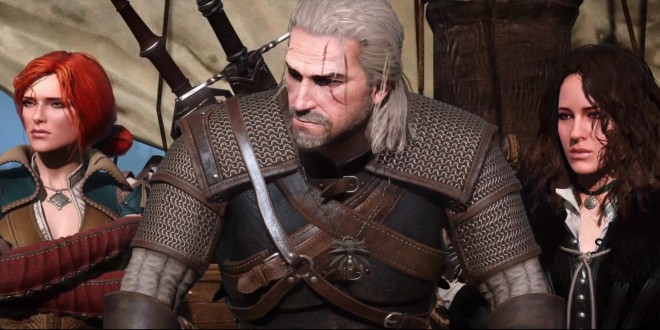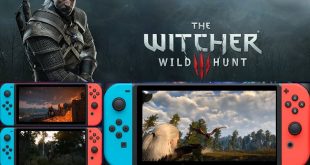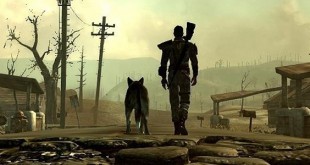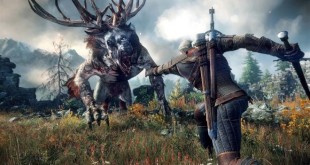Violence Against Women
As you can expect in a medieval-based setting, any misogyny you witness is just historical accuracy and gritty realism in that regard. But CD Project Red could have reasonably relinquished any strong female characters in the development and made it a straight-up boys club with violence against insignificant women, but there is actually very little of this. One exception I witnessed is a sorceress being burnt alive (Witch burnings, anyone?), and a character recounting the way he beat his wife. Although the Witcher 3 at times may be extremely graphic and visceral and cuts straight to the bone, it takes a very mature and austere approach to most of its themes, even whilst dealing with dangerously sensitive topics such as domestic abuse, miscarriages and suicide. It approaches them in a convincingly believable way that does sincere justice in its portrayal of the emotional weight, as well as the psychology and circumstances surrounding these matters. One particular scenario in the game that I have not come across yet, but which apparently features some dead prostitutes has caused some distress, but it was not just Arthur Gies who voiced his disapproval of this segment.
Kotaku’s Kirk Hamilton joined the fray: “A low point comes midway through the story when Geralt comes upon a scene of profound fucked-upedness, a group of women who have been sexually brutalized and murdered seemingly purely as a means of motivating players to kill the man responsible. (Probably would’ve wanted to kill him without seeing a dead prostitute nailed to the wall, thanks.)”
Once again, I must hold my hands above my head and admit ignorance as I have not encountered this event myself, but dare I ask; what is worse about seeing a dead prostitute nailed to the wall rather than, say a decapitated man dangling from the ceiling with hooks, or an entirely mutilated, dismembered man laid in pieces on a table, to be eaten by a cannibal? I have seen this depravity on multiple occasions, and it never once phased or offended me because it is a bi-product of this war-torn, twisted, medieval fantasy setting that CDPR successfully portray.

There are tens of thousands of inhabitants with varying occupations and responsibilities in this world, ranging from prostitutes, soldiers, thugs, cannibals, thieves, bandits, civilians, dock workers, farmers, peasants, sorceresses, witchers, herbalists, blacksmiths, bartenders, armorers, pirates, merchants, shield maidens, priests, and many others. But Kirk Hamilton of Kotaku only has an issue with one of these being killed- prostitutes… interesting.
I will give credit where it is due, though, as he does go on to admit the game does actually “say something about oppression, rather than simply depicting it.” Well observed- I think he might actually be getting the hang of this. Still, it makes me wonder why he felt that a statement regarding the dead prostitute being too “fucked up” was even a relevant inclusion to his review of an adult-rated game which ultimately flourishes in its depiction of brutality.
To quote Adrian Chmielarz, “why is such a world a problem? Is the reviewer confusing portrayal with endorsement? Should art be propaganda for a peaceful life? Should art avoid disturbing universes?” Although it was targeted at the writer of the Polygon review, it certainly rings true when set against the Kotaku article too.
I feel it is also pertinent to the discussion to discuss the people that die at your own hands in this game and I will openly admit that I have killed a woman in The Witcher 3. The game did not force me to, but I made an informed decision on the matter. This character had a strong personality, was powerful, independent but, disappointingly a severe threat that I could not trust as she had previously betrayed me and had some dodgy motives. At the very least, she died fighting for what she believed, furthermore I actually felt guilty about her death. I am not sure if it was by pure coincidence or a conscious decision by the developers, but laying her to rest prompted a rainstorm, then in came depressing music. I felt dirty.
On the other hand, I can scrupulously approximate that I have killed up to 400 human (and some Dwarven) males in the game so far, never really regretting a single one. They were mostly nameless, without much personality to speak of, who were a mere obstruction. Maybe as a fellow man I should feel offended or feel like an oppressed victim of sexism or something, but do I need to remind you… it is just a video game.

The Roles of Women
Perhaps the violence is not the most apposite concern in relation to sexism, but rather the treatment of the female gender as a whole. Evidently there is no issue with the main female characters, as our friend, Mr Top Hats & Champagne will gladly expand upon.
In The Witcher 3, the NPC’s, both males and females have little to say and have little depth but similar to their male counterparts, the females play a variety of roles, from farmers to pub-owners, sea captains and many others, as indicated above.
How about the quest-giving characters and the ones that you can carry out full conversations with? I have encountered many female characters throughout the world that I have done quests for or conversed with, and here are a few examples of what I have experienced.
- In one mission a woman who was trying to dry her laundry, was being harassed by some thugs, and so I slaughtered them all to save her. As it turns out, she was rather annoyed with me for doing that, as I had gotten blood on the laundry she had just cleaned, to which she says something along the lines of “men have their fun, and women have to clean up the mess”. She would have preferred to have taken care of herself than be protected, because I undermined her hard work.
- I encountered a Dwarven armorer and his human female assistant, Yoana who claimed that she was crafting all the armour herself but the Dwarf, Fergus was getting all the credit because dwarves and men are stereotypically the masters at forging and blacksmithing, and no one could believe that a human woman could forge such high quality armour. It is clear from a conversation with the two, that she is far more knowledgeable than him, and she asks you to collect her some resources so she can prove it to you. If you choose to do so, you will discover that Yoana’s armor is better than the dwarves and so the local general hands the forge over to her, and in gratitude she crafts you a suit of armour.
- I met some shield-maidens in the Island of Skellige, and during a Wake I met a few local widows who told me that they don’t need men to take care of them. They may be widows but they are strong, determined and speak of how they forge their own future, that war and death are known well to them so they raise their sons to be strong.
To further add, in the Kotaku review, Kirk contributes another example of saving a woman that did not want to be saved, who criticizes Geralt about how he may have helped her on this one occasion, but will not be there next time it happens. I can only assume that this is used as a commentary of an Omni-present oppression of women in this society that cannot be solved by one man. So Arthur was half-right when he describes the world as “oppressively misogynistic”- it is a shame he could not simply leave it at that but instead went on to infer that CDPR had some sinister motives behind their decision to portray the world this way.
While The Witcher clearly portrays men as the majority of soldiers, guards and bandits to compliment the setting, CDPR do not forgo providing the female characters their own important roles, even the aforementioned mothers are portrayed as strong women who are responsible for raising the strong male soldiers and warriors that we see in the world. Although there was a conscious and sensible choice to not portray women with the same physical strength as the men, this is compensated by bringing a number of main female characters with special powers to the fold. For example there are a few sorceresses and even a female Witcher, who are all major characters, more-so than most of the men, besides Geralt of course! Arguably the other playable Witcher, Ciri, is stronger than the protagonist himself, and has a bunch of powerful abilities at her disposal to make quick work of even the fiercest and most intimidating enemies.

In fact, Ciri blazes her own trail independently and alone in order to survive the ever-increasing threat of the Wild Hunt (bad guys) who are tracking her down because of the Elder Blood in her veins. Throughout the game, Geralt searches far and wide and struggles to even get some substantial, up-to-date information on her whereabouts, let alone catch up with her. It’s evident from the portions in which you play as her that she exceeds Geralt in every way from agility, resilience and downright strength.
Closing Thoughts
So what have we learned and what can we conclude? I have personally learned to treat video-game journalism with greater scepticism than that which I demonstrate with any other area of journalism, particularly with that which I read on Polygon. What you shall take away from this depends entirely on your independent worldview, but with an experience that directly contradicts Arthur’s, laid out before you, I can only hope that at the very least, you can form a more informed and well-rounded opinion on the matter rather than resort to another one-dimensional accusation of misogyny.
I think the, frankly, unprofessional critical response to The Witcher 3, with all its baseless attacks on the pure intentions of CDPR, only further prove that games journalism could really stand to benefit from being shaken up.
It does not have to be the way it currently is, and I maintain hope that one day gamers can read an article or review from a reputable site like Polygon and feel that they can trust the author. For that to happen, we need to return to a simpler time in which we judge games upon their genuine merit rather than whatever loosely defined, quasi-political beef we may have with its themes. I believe we need to get our hands around this identity politics nonsense and completely uproot it, and keep it out of games journalism for good. It might not solve all of the problems us gamers face, but it is a bloody good place to start.
 Load the Game Video Games, Reviews, Game News, Game Reviews & Game Video Trailers
Load the Game Video Games, Reviews, Game News, Game Reviews & Game Video Trailers



